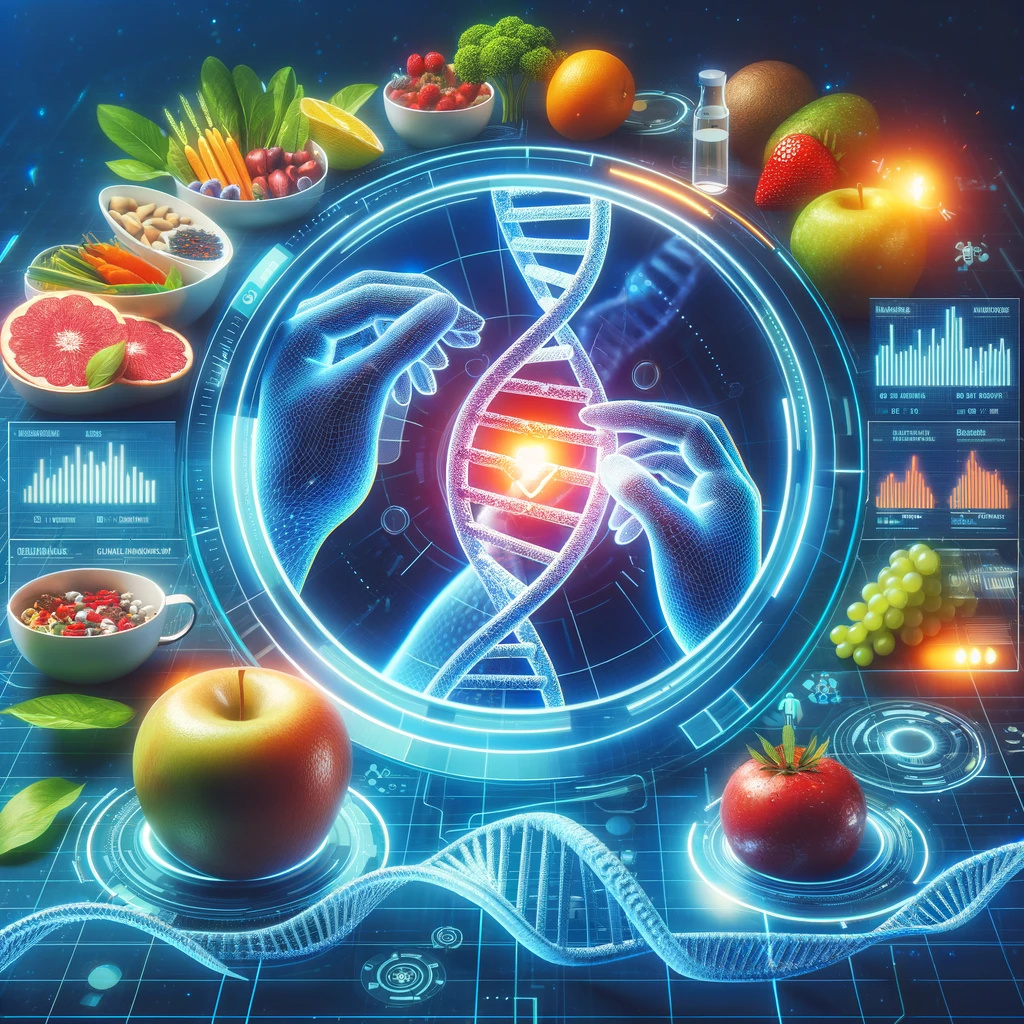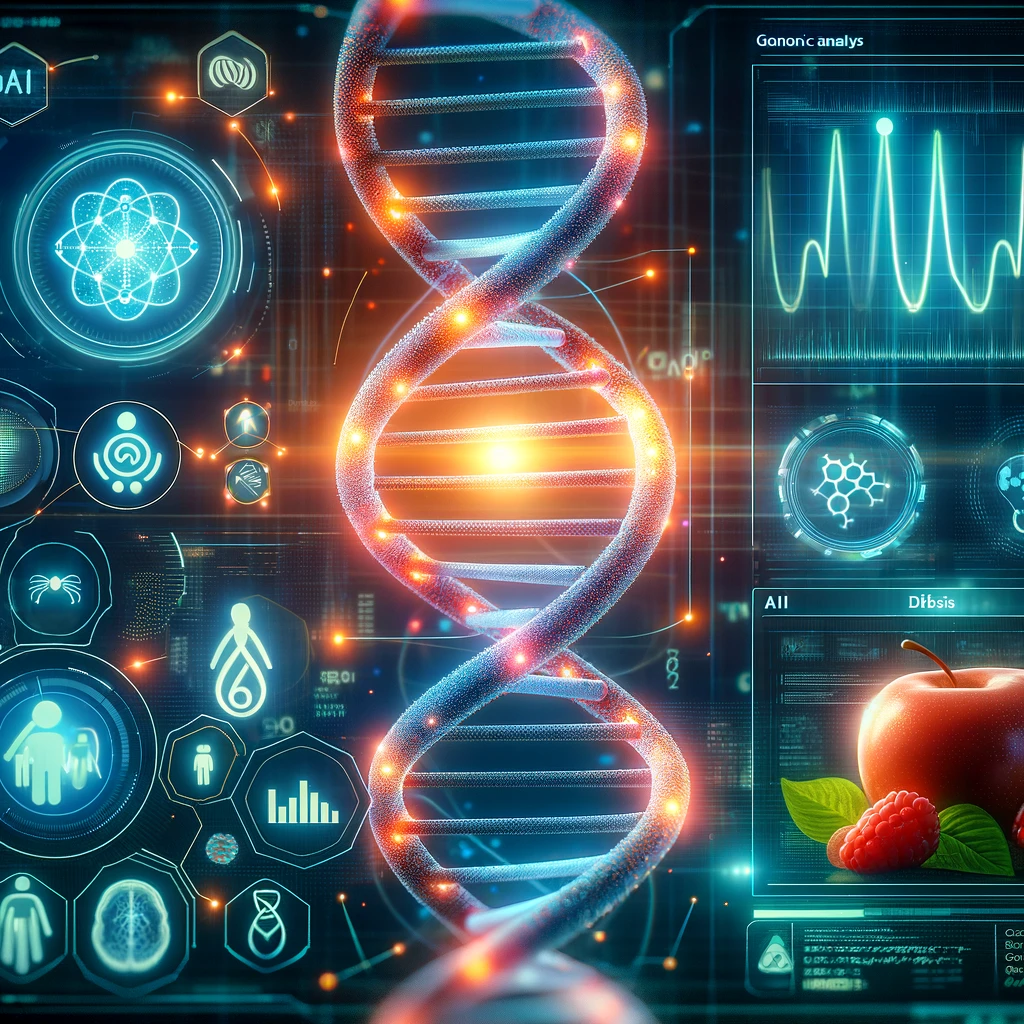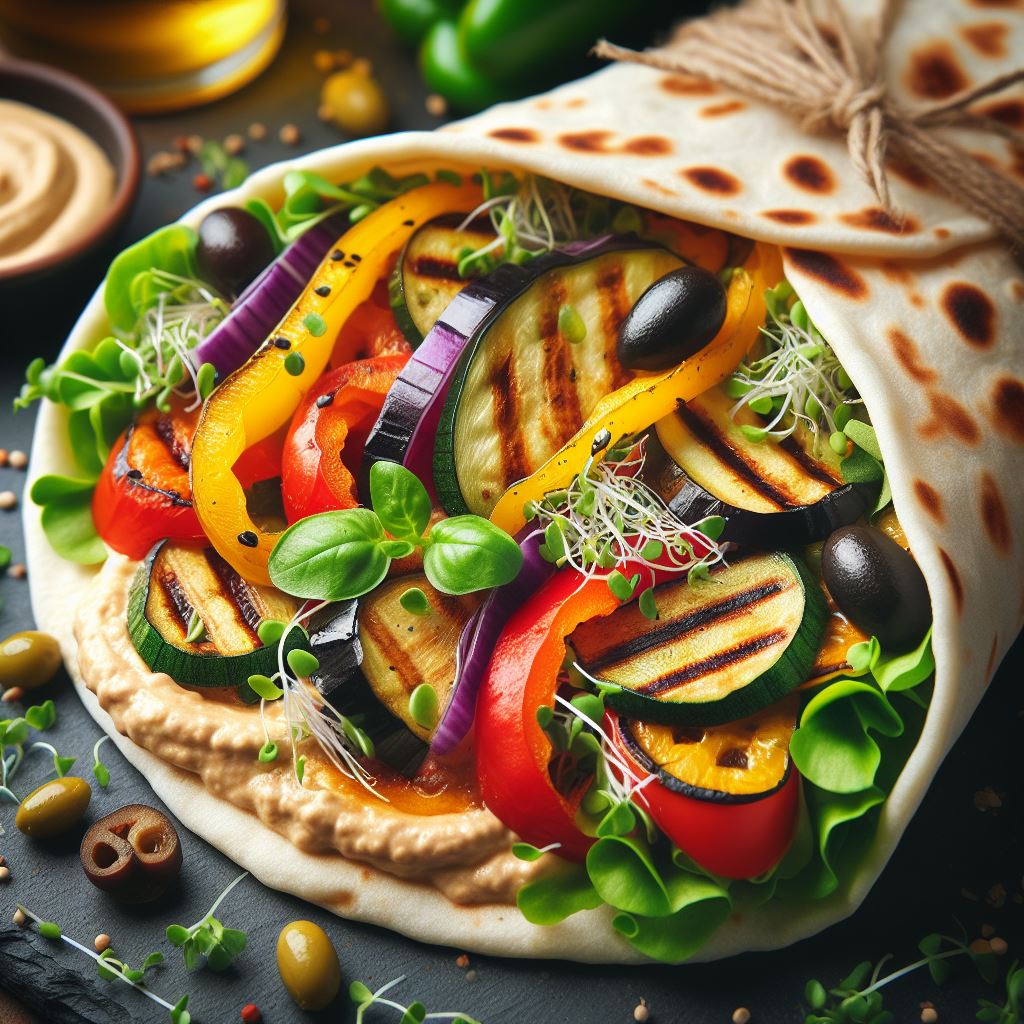Your Ultimate Guide to Sustainable Weight Loss! If you’re looking for a healthy and sustainable way to lose weight, you’ve come to the right place. In this guide, we’ll explore the latest research on weight loss, provide tips and tricks for staying motivated, and offer practical advice for making healthy lifestyle changes that will last a lifetime.

Sustainable weight loss is about more than just shedding pounds. It’s about improving your overall health and well-being, reducing your risk of chronic diseases, and feeling your best every day. With this guide, you’ll learn how to make small changes that add up to big results. We’ll cover everything from nutrition and exercise to stress management and sleep hygiene.
Table of Contents
If you’re tired of fad diets and quick fixes that don’t work, you’re not alone. Sustainable weight loss is a journey, and we’re here to help you every step of the way. By following the principles of this guide, you’ll be able to achieve your weight loss goals in a healthy and sustainable way. So, let’s get started on your journey to sustainable weight loss today!
Your Ultimate Guide to Sustainable Weight Loss: Having a Great Mindset
Losing weight is not only a physical challenge but also a mental one. Your mindset can influence your motivation, self-esteem, resilience, and self-compassion, which are all essential for achieving and maintaining weight loss. Having a great mindset can help you overcome obstacles, stay focused, and enjoy the process of transforming your body and health. Here are some tips on how to cultivate a great mindset for sustainable weight loss:
1. Find your why
Before you start your weight-loss journey, you need to have a clear and compelling reason for why you want to lose weight. What difference will it make to your life, your happiness, or your health? How will it align with your values, goals, and dreams? Having a strong reason can help you stay motivated, inspired, and committed to your weight loss plan, especially when you face challenges or temptations.
“He who has a reason to live can bear almost any how.” Friedrich Nietzsche
2. Adopt a growth mindset

A growth mindset is the belief that you can improve your abilities and skills through effort, learning, and feedback. A growth mindset can help you embrace challenges, learn from mistakes, and seek opportunities to grow and improve. A growth mindset can also help you avoid the pitfalls of a fixed mindset, which is the belief that your abilities and skills are fixed and cannot be changed. A fixed mindset can lead to fear of failure, avoidance of feedback, and resistance to change.
“The passion for stretching yourself and sticking to it, even (or especially) when it’s not going well, is the hallmark of the growth mindset. This is the mindset that allows people to thrive during some of the most challenging times in their lives.” Carol Dweck
3. Celebrate your progress
One of the keys to having a great mindset for sustainable weight loss is to celebrate your progress, no matter how big or small. Celebrating your progress can help you boost your confidence, reinforce your positive habits, and increase your happiness. You can celebrate your progress by acknowledging your achievements, rewarding yourself with something healthy and enjoyable, and sharing your success with others who support you.
“Don’t let the fear of the time it will take to accomplish something stand in the way of your doing it. The time will pass anyway; we might just as well put that passing time to the best possible use.” Earl Nightingale
4. Practice gratitude
Gratitude is the feeling of appreciation and thankfulness for what you have and what you experience. Practicing gratitude can help you shift your focus from what you lack to what you have, and from what you can’t do to what you can do. Practicing gratitude can also help you reduce stress, improve your mood, and enhance your well-being. You can practice gratitude by keeping a gratitude journal, expressing your gratitude to others, or meditating on the things you are grateful for.
“Gratitude unlocks the fullness of life. It turns what we have into enough and more. It turns denial into acceptance, chaos into order, and confusion into clarity. It can turn a meal into a feast, a house into a home, a stranger into a friend.” Melody Beattie

5. Be kind to yourself
Last but not least, having a great mindset for sustainable weight loss means being kind to yourself. Being kind to yourself means treating yourself with compassion, respect, and understanding, especially when you struggle or make mistakes. Being kind to yourself can help you cope with negative emotions, forgive yourself, and move on. Being kind to yourself can also help you avoid self-criticism, self-judgment, and self-sabotage, which can undermine your weight loss effort.
The Science Behind Sustainable Weight Loss
Losing weight is not just about counting calories or following fad diets. It is about understanding how your body works and what it needs to function optimally. In this blog post, we will explore some of the scientific principles that can help you achieve sustainable weight loss and improve your health.
Metabolism and Energy Balance
Metabolism is the process by which your body converts food into energy. Numerous factors, including your age, gender, hormones, genetics, level of activity, and muscle mass, all play a role. The more muscle you have, the higher your metabolic rate, which means you burn more calories even at rest.
Energy balance is the relationship between the calories you consume and the calories you expend. To lose weight, you need to create a negative energy balance, which means you burn more calories than you eat. However, this does not mean you should starve yourself or overexercise. Doing so can slow down your metabolism and make it harder to lose weight in the long term.
Nutrition, Hormones and Genetics

Nutrition is the quality and quantity of the food you eat. It affects your metabolism, hormones, and overall health. Hormones are chemical messengers that regulate various functions in your body, such as appetite, mood, and fat storage. Some of the key hormones involved in weight loss are insulin, leptin, ghrelin, and cortisol.
Insulin is the hormone that controls your blood sugar levels. It helps your cells use glucose for energy or store it as fat. Eating too much sugar or refined carbohydrates can cause your insulin levels to spike and drop, which can lead to cravings, hunger, and weight gain.
Leptin is the hormone that signals your brain that you are full and satisfied. It helps you regulate your energy intake and expenditure. However, if you have excess body fat, your leptin levels can become too high, and your brain can become resistant to its effects. This can make you overeat and store more fat.
Ghrelin is the hormone that stimulates your appetite and tells your brain that you are hungry. It is produced in your stomach and increases before meals and decreases after meals. However, if you skip meals, restrict calories, or sleep poorly, your ghrelin levels can rise, making you feel hungrier and eat more.
Cortisol is the hormone that helps you cope with stress. It increases your blood sugar and blood pressure, and it suppresses your immune system. However, if you are chronically stressed, your cortisol levels can remain elevated and cause you to crave sugary and fatty foods, store more fat around your abdomen, and increase your risk of chronic diseases.
To balance your hormones and optimize your nutrition, you should eat a balanced diet that consists of whole foods, such as vegetables, fruits, lean proteins, healthy fats, and complex carbohydrates. You should also avoid processed foods, added sugars, and artificial sweeteners, as they can disrupt your hormones and metabolism. Additionally, you should drink plenty of water, as dehydration can affect your hunger and energy levels.

Genetics plays a significant role in determining an individual’s body mass index (BMI). It influences various factors, such as the efficiency of fat storage and burning, appetite control, metabolism, and how the body responds to diet and exercise. While BMI is often considered in the context of lifestyle choices, understanding the genetic contributors is crucial as they make each person’s body unique1.
Obesity, which is closely related to BMI, is a complex condition with both genetic and environmental factors. The development of genome-wide association studies (GWAS) and next-generation sequencing (NGS) has led to the discovery of genetic associations with obesity. Certain genes, such as LEP (leptin), LEPR (leptin receptor), POMC (proopiomelanocortin), and MC4R (melanocortin 4 receptor), have been identified as having a significant impact on obesity2.
Moreover, obesity can be classified into syndromic and non-syndromic types, with the former associated with developmental delay and early-onset obesity. Non-syndromic obesity can be monogenic, involving variants of single genes, or polygenic, involving several genes2.
Heritability estimates for obesity indicate a strong genetic contribution at the individual level, although the exact biological pathways are not fully understood. Genetic variants predisposing to obesity might also modify behavioral responses to the environment, creating a gene-environment interaction. This means that dietary components, physical activity, and socioeconomic status might alter the association between genetic predisposition and BMI3.
In summary, genetics has a substantial say in an individual’s BMI, but it is also influenced by environmental factors and lifestyle choices. Understanding the genetic basis of BMI can help in developing targeted approaches for obesity prevention and treatment3.
A Comprehensive Overview of Body Weight Gain and Loss

Increasing or decreasing body weight are two of the most common and challenging goals people set for themselves. However, to achieve them, you need to understand how your body works and what factors influence your weight. In this blog post, we will explain some of the basic principles of how the body loses weight and gains it, and how you can use this knowledge to reach your desired weight.
Calories and Energy
Calories are units of energy that measure how much fuel your body gets from the food and drinks you consume. Your body needs calories to perform various functions, such as breathing, digesting, moving, and thinking. However, the amount of calories you need depends on your age, gender, height, weight, activity level, and metabolism.
Metabolism is the process by which your body converts calories into energy. Numerous factors, including your body composition, muscle mass, hormones, and genes, affect it. Even when you are at rest, your metabolism increases as it rises.
The relationship between calories consumed and calories expended is known as energy balance. You must achieve a negative energy balance—that is, burn more calories than you consume—in order to reduce weight. You must achieve a positive energy balance, or consume more calories than you expend, in order to gain weight.
Fats, Proteins, and Carbohydrates
Carbohydrates, proteins, and fats are the three main macronutrients that provide energy and essential nutrients for our body. They have different roles and functions in our metabolism, health, and well-being. Here is a brief overview of each macronutrient and some examples of the best and worst sources to obtain them.
Carbohydrates
Carbohydrates are the primary source of energy for our cells, especially the brain and the muscles. They are composed of sugar molecules that can be simple (monosaccharides and disaccharides) or complex (polysaccharides). Carbohydrates are classified into two types: starches and fibers.
- Starches are digestible carbohydrates that provide glucose, the main fuel for our body. They are found in grains, legumes, potatoes, corn, and other starchy vegetables.
- Fibers are indigestible carbohydrates that help regulate digestion, blood sugar, cholesterol, and bowel health. They are found in fruits, vegetables, nuts, seeds, and whole grains.
Some of the best sources of carbohydrates are:

- Whole grains, such as oats, quinoa, brown rice, barley and buckwheat
- Fruits, such as apples, bananas, berries, oranges and grapes
- Vegetables, such as broccoli, carrots, spinach, kale and sweet potatoes
- Legumes, such as beans, lentils, peas and soybeans
Some of the worst sources of carbohydrates are:
- Refined grains, such as white bread, white rice, pasta and pastries
- Added sugars, such as candy, soda, cookies, cakes and ice cream
- Processed foods, such as chips, crackers, cereals and sauces
Proteins
Proteins are the building blocks of our body, as they are involved in the formation and maintenance of muscles, bones, skin, hair, nails, enzymes, hormones, and antibodies. They are composed of amino acids, some of which are essential (meaning that we need to get them from food) and some of which are non-essential (meaning that our body can make them).
Some of the best sources of proteins are:
- Animal products, such as eggs, milk, cheese, yogurt, meat, poultry and fish
- Plant products such as tofu, tempeh, edamame, nuts, seeds and quinoa
Some of the worst sources of proteins are:
- Processed meats, such as bacon, ham, sausage, hot dogs and deli meats
- Fried foods, such as chicken nuggets, fish sticks, french fries and onion rings
- Low-quality protein powders, such as those with artificial sweeteners, colors and flavors
Fats

Fats are the most concentrated source of energy for our body, as they provide 9 calories per gram, compared to 4 calories per gram for carbohydrates and proteins. They are also important for the absorption of fat-soluble vitamins (A, D, E, and K), the production of hormones, the insulation of organs, and the protection of cell membranes. They are composed of fatty acids, which can be saturated, monounsaturated, or polyunsaturated.
- Saturated fats are solid at room temperature and tend to raise the levels of LDL (bad) cholesterol in the blood. They are found in animal products, such as butter, cream, cheese, lard, and fatty meats, and in some plant products, such as coconut oil, palm oil, and palm kernel oil.
- Monounsaturated fats are liquid at room temperature and tend to lower the levels of LDL cholesterol and raise the levels of HDL (good) cholesterol in the blood. They are found in plant products such as olive oil, canola oil, peanut oil, avocado, nuts, and seeds.
- Polyunsaturated fats are liquid at room temperature and tend to lower the levels of both LDL and HDL cholesterol in the blood. They are found in plant products such as soybean oil, corn oil, sunflower oil, flaxseed, walnuts, and fish.
Some of the best sources of fat are:
- Omega-3 fatty acids, which are a type of polyunsaturated fat that have anti-inflammatory and brain-boosting benefits,. They are found in fish, such as salmon, tuna, sardines, and mackerel, and in plant products, such as flaxseed, chia seed, hemp seed, and walnuts.
- Omega-9 fatty acids, which are a type of monounsaturated fat that have heart-healthy and blood sugar-regulating benefits,. They are found in olive oil, canola oil, avocado, almonds, and cashews.
Some of the worst sources of fat are:
- Trans fats, which are a type of unsaturated fat that have been artificially hydrogenated to make them more stable and solid,. They have been linked to an increased risk of heart disease, stroke, diabetes, and obesity. They are found in processed foods such as margarine, shortening, baked goods, fried foods, and snack foods.
- Excess saturated fats, which can contribute to high cholesterol, inflammation, and weight gain,. They should be limited to less than 10% of total calories per day, according to the Dietary Guidelines for Americans.
Fat and Muscle

Fat and muscle are two of the main components of your body’s weight and composition. Fat is the excess energy that your body stores in adipose tissue, which is located under your skin and around your organs. Muscle is the tissue that allows your body to move and function and is composed of protein and water.
Fat and muscle have different effects on your weight and metabolism. Fat is less dense and more voluminous than muscle, which means it takes up more space and weighs less. Fat also has a lower metabolic rate than muscle, which means it burns fewer calories. Muscle, on the other hand, is more dense and less voluminous than fat, which means it takes up less space and weighs more. Muscle also has a higher metabolic rate than fat, which means it burns more calories.
To lose fat and gain muscle, you need to combine a healthy diet with an appropriate exercise regimen. A healthy diet should provide you with enough calories and nutrients to support your metabolism, health, and performance, but not more than you need. An appropriate exercise regimen should include both aerobic and anaerobic activities, such as cardio and strength training, to stimulate your fat-burning and muscle-building processes.
Exercise
Exercise is the physical activity that you do to improve your fitness and health. It can help you burn calories, boost your metabolism, build muscle, reduce stress, and prevent diseases. However, not all exercises are created equal. Some of the best exercises for weight loss are:

- High-intensity interval training (HIIT), which involves alternating between short bursts of intense exercise and brief periods of rest,. HIIT can help you burn more calories in less time, increase your metabolic rate, and improve your cardiovascular health.
- Strength training, which involves lifting weights or using your own body weight to build muscle and strength,. Strength training can help you increase your muscle mass, which can raise your metabolic rate and help you burn more calories even at rest.
- Aerobic exercise, which involves moving your large muscles in a rhythmic and continuous manner. Aerobic exercise can help you improve your endurance, lower your blood pressure, and reduce your risk of heart disease and diabetes.
To get the most benefits from exercise, you should aim for at least 150 minutes of moderate-intensity or 75 minutes of vigorous-intensity aerobic exercise per week, along with two or more sessions of strength training per week. You should also vary your exercises and intensity to challenge your body and prevent boredom and plateaus.
Lifestyle is the way you live your life and the choices you make every day. It affects your weight, health, and happiness. Some of the lifestyle factors that can influence your weight loss are:

- Sleep, which is the time when your body and mind rest and recover,. Sleep can affect your hormones, appetite, metabolism, and mood. Lack of sleep can make you feel hungrier, crave unhealthy foods, and store more fat. To improve your sleep quality, you should aim for seven to nine hours of uninterrupted sleep per night, avoid caffeine and alcohol before bed, and follow a regular sleep schedule.
- Stress is the response of your body and mind to challenging or threatening situations. Stress can affect your hormones, immune system, and behavior. Chronic stress can make you overeat, store more fat, and increase your risk of diseases. To manage your stress, you should practice relaxation techniques such as meditation, breathing exercises, yoga, or massage. You should also seek social support, express your emotions, and solve your problems.
- Habits are the actions that you take repeatedly and automatically. Habits can shape your behavior and outcomes. Some habits can help you lose weight, such as eating slowly, drinking water before meals, and keeping a food journal. Some habits can hinder your weight loss, such as skipping breakfast, snacking mindlessly, and eating in front of the TV. To change your habits, you should identify your triggers, replace your old habits with new ones, and reward yourself
A sustainable weight management plan is a personalized, multifaceted approach that goes beyond diet and exercise to include sleep, stress management, and gut health. It emphasizes balance, flexibility, and a positive relationship with food and activity. By setting realistic goals, adopting a holistic view of health, and embracing a compassionate, patient attitude towards oneself, individuals can achieve sustainable weight loss and improved overall health, laying the foundation for a lifetime of well-being.
I hope these suggestions, drawn from top sources in the field of health and nutrition, will assist you on your weight loss journey. The 5 basic tips are your stepping stones to your journey, and being informed is even greater. We wish you the best.